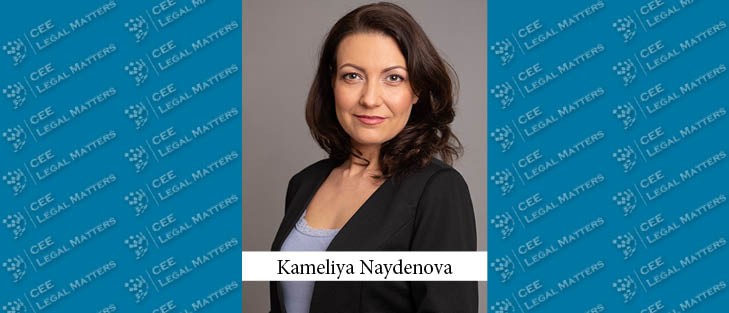Mondelez International Senior Counsel Competition Law Compliance Kameliya Naydenova emphasizes the importance of communication, trust, and practical expertise when working with external legal counsel.
CEELM: What types of legal work does your team tend to externalize?
Naydenova: I would not say that the “one size fits all” approach works in every situation. We externalize legal work to our external legal partners depending on various factors – timing, focus on other priorities that we have at the current moment, need for multi-disciplinary or specific narrow expertise where our preference would be to have an external team working on the topic.
Naturally, every company needs to keep an eye on its budget. We have our internal processes in place helping us to decide whether to handle certain topics in-house or outsource them, and whether to go with billable hours or fixed-price projects.
CEELM: What are the most important criteria you look at when picking which firm/lawyer you’ll be working with on a project?
Naydenova: For us, it is crucial to work with lawyers who are not only knowledgeable legal experts but also have practical knowledge of how legislation is implemented in real-life business scenarios. It’s not just about having theoretical knowledge, but rather, it’s about providing advice based on strong expertise that is practical and can be implemented from our business perspective. The requested legal advice often involves input from different markets and an understanding of legislation across multiple jurisdictions.
Our preferred approach is to have a one-stop-shop option where possible. This is highly beneficial if we have advisors present in as many jurisdictions as needed. The one-stop-shop solution saves us time and avoids having different conversations with different people and law firms while allowing them to provide all the required local law perspectives.
In terms of the selection process itself, we seek reputable law firms, whether through recommendations or by looking at the rankings. We have a selection and approval process in place where we give equal and objective opportunities to all candidates. In smaller markets with local law firms, we review publicly available information and rankings, particularly in specific areas of law that are most important to us.
CEELM: What best practices have you developed over time in instructing a law firm for a new mandate?
Naydenova: We think mutual trust and good and clear communication are key to getting the full picture and building a strong working collaboration. After selecting a law firm, it’s important that they speak our language. Legal language can get pretty theoretical, and we need lawyers who can communicate in a business-friendly way. We try to support our external partners by sharing relevant business details and insights, while we rely on them not only on pure legal advice but also on consulting regarding trends and policies in the respective jurisdictions.
It’s crucial to have good communication and an understanding of business in today’s complex world. In certain cases, there are many legal areas involved and robust multi-layered advice is needed where on top we need to consider different legal environments in multiple jurisdictions. That’s why having lawyers with a multidisciplinary approach is important, though there are times when we need specific narrow expertise. We rely on teams that have both broad and specialized knowledge, so we don’t lose sight of the bigger picture.
We make sure there are no conflicts of interest, checking this in advance to protect our business secrets and confidential information, and to maintain respect as business partners. This process ensures transparency and trust on both sides.
CEELM: What is your preferred billing structure when it comes to external counsel? And what steps do you take throughout the mandate to limit budgets going over?
Naydenova: For newly enrolled firms, we have a procurement process in place, not just for fee assessment, but also for the level of expertise and type of services, so we can compare apples to apples. When we have standard agreements and an initial enrollment process, we ensure we work with reputable law firms. We go through a fair and transparent selection process.
CEELM: Do you internalize input from external counsel in some form of a knowledge bank? If so, how?
Naydenova: Our internal legal colleagues are based in various markets and for us staying connected and having good knowledge sharing is crucial. Luckily, in nowadays digital reality this is not hard to achieve. We have regular knowledge-sharing connects, group discussions, and brainstorming sessions. It’s important for us to not just give advice and share legal information but also to build team spirit to share broader knowledge and exchange ideas by promoting the team culture and rewarding successful solutions.













